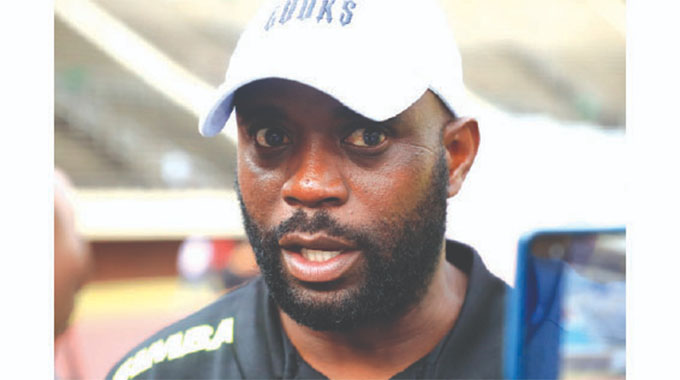The rise of Paul Pogba
PARIS. — Since his childhood, Paul Pogba has forged the weapons to become a football legend. He is always looking forward with a ferocious ambition and a formidable mental strength. In less than a fortnight, he will lead France into Euro 2016, and never has so much been expected of him.
Born in the suburb of Seine-et-Marnaise to Guinean parents, he first started to play at US Roissy-en-Brie, where he learned his love of the game.
Papis Magassa, one of his first coaches, remembers a prodigious kid. “I’ve known him since he was very small, and then I coached him with the Under-9s, 10s and 12s,” he said. “During these three years, it was already clear he was developing rapidly. He became more athletic, more technical – it was obvious the gulf between him and the others.
“In terms of his maturity and his determination, there was no-one at his age of an equivalent standards. Paul always wanted to be the best, to be head and shoulders above everyone else.”
From Roissy, he had a spell at Torcy as a 14-year-old, and then moved to Le Havre. Less than a year later, he played for France Under-16 for the first time.
“He’s changed a lot,” considered brother Florentin Pogba, who is a centre-back in Ligue 1 with Saint-Etienne. “He was an unruly and stubborn kid. But he matured when he was put in contact with more senior players than him in the world of professionalism. We spoke all the time. Today, of course, I’m proud of him.”
Paul, meanwhile, learned, listened and progressed at light speed.
It was little surprise, therefore, when the Manchester United academy opened his doors to him. But two years at Old Trafford did not bring Pogba the confidence he wanted from erstwhile manager Sir Alex Ferguson, though that did not stop his progress through the national ranks. He played at every age group from Under-16 through to Under-20 and finished up as Pierre Mankowski’s captain as France when to the U20 World Cup in 2013. It was a competition that finished on a dizzying high, as Pogba helped his side to the crown and scooped the Best Player award in the process.
“When he spoke, what interested me was his patience. He always aimed for the best, and with the others he didn’t cause any problems because he was everyone’s friend. He was happy to shoulder the burden,” Mankowski explained.
A year earlier, he had displayed his self confidence when he elected to leave Manchester United following a spectacular falling out with Ferguson. Juventus proved to be his destination: a new country and a fresh challenge, even if he remained with a European heavyweight.
His first season was solid, as he played 37 times and scored five goals. In 2013, his talents would be consecrated, as he partnered Arturo Vidal and Andrea Pirlo in the centre of the midfield and scored nine goals, earning a call to the France national side in the process. Only six years after playing for Le Havre and still aged only 20, he had turned out for his country – a meteoric rise.
Today, he is 23 and carries the hopes of Juventus on his shoulders. He has become the key player in Massimiliano Allegri’s side. In Italy, he is seen as a breath of fresh air, a player comparable to Patrick Vieira, who was less technically skilled at his age when he crossed the Alps to play for the AC Milan of Fabio Capello.
A physique formed in England, tactics learned in Italy and a mentality forged in France: Pogba has become one of the most complete players on the continent.
When Didier Deschamps selected him for the first time, for a World Cup qualifying match, he was already aware of the midfielder’s status as a prodigy. Pogba exudes intelligence, as he has an ease going forward that allows him to penetrate enemy lines, often with just one touch of the ball – a talent no doubt inspired by former team-mate Andrea Pirlo.
His nickname in Italy, “Pogboom”, illustrates his ability to perform multiple tasks. His physicality allows him to perform his primary task as a ball winner, while his technical ease provides him with a forward thrust that makes him an attacking threat, which Deschamps immediately understood.
In his first match against Georgia, Pogba touched the ball more than anyone else. Though he was dismissed against Spain in his next outing, the midfielder did not have to wait long before finding the net for the first time for his country as he scored against Belarus. He has never lost his space in the starting XI since.
Deschamps has found a man previously missing in his starting XI: he can do everything, is quick, fierce, can play multiple roles and has a sublime shooting quality. Few players possess such a range of attributes, and Pogba has maintained these from an early age.
“When he was small, he played in attack and would score 50 goals in a season – if not more. It’s therefore logical today that he likes to get forward. When you have a taste for scoring, you don’t lose it. So, yes, he’s a midfielder, but a midfielder who wants goals,” Magassa explained.
In the French team, this quality manifests itself all over the field. He combines well with other players who have complimentary profiles, such as Blaise Matuidi, Morgan Schneiderlin and Yohan Cabaye. But little by little, Pogba has become the fulcrum, linking the defence and attack. — Goal.com








Comments